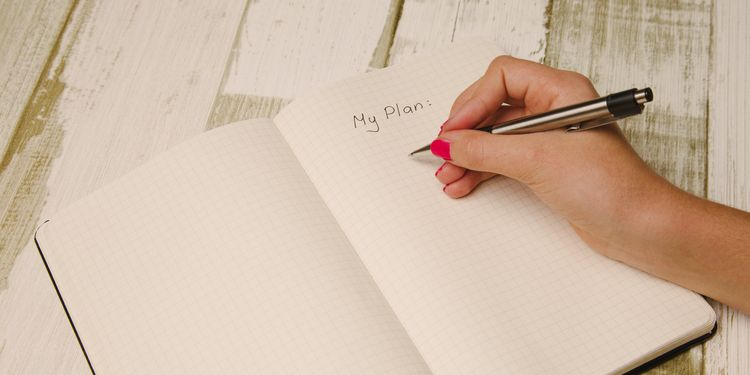How To Build A Winning Routine

If you’re looking to live a healthy, awesome life, know this— you’re not going to succeed on willpower alone.
You also need a winning routine.
Exerting your willpower is tiring! You only have so much of it to use each day. A solid, healthy routine moves you toward health and success with little to no need for willpower or discipline.
When you have a winning routine, all the energy that might have gone toward deliberating and exerting willpower is now freed up for you to use to pursue whatever really lights you up and makes you come alive.
You can finally write that book, build your business, spend quality time with your family, or pursue your health goals.

The Building Blocks of a Winning Routine
Now that you’re clear on the importance of routine in your life, how do you develop one that works?
Habits! Good habits.
Habits are actions you repeat with little to no effort, sometimes unconsciously. Anything can become a habit. Repeat an action with enough consistency and sooner or later, this action will be programmed into your system and become a habit.
The good news is that your brain is primed to form habits! Your brain is all about efficiency, and habitual actions require less energy.
The bad news is that bad habits are much easier to program into your brain than good habits. This is because bad habits are usually about short-term pleasure.

If you decide to eat a tub of ice cream and watch TV at the end of a crappy day, your brain will quickly equate “eating ice cream and watching TV” with “feeling better.” Next time you’re having a crappy day, your brain will helpfully remind you that last time, eating ice cream and watching TV made you feel better. And just like that, an unhealthy habit is born.
Good healthy habits are harder to program into your brain because, for the most part, they depend on delayed gratification. And your brain isn’t particularly good at delayed gratification.
If you’re out of shape and haven’t exercised in months, your first workout is probably going to suck. Because it’s focused on the short term, your brain will only make the connection that “working out = unpleasant, painful, and difficult.”
It takes many workouts, completed consistently over weeks and months, for your brain to get the full picture: regular exercise, while potentially unpleasant in the short term, is amazingly beneficial in the long term.
While it can be difficult to form good habits, it’s not impossible! Not by a long shot.
How to Develop Healthy Habits
Be Specific
Vague habits make for vague results. If you want to achieve something, be specific!
For example, “I want to do yoga three times each week,” not “I want to work out more.”
Or what about, “Include at least 20 grams of protein in each main meal I eat” instead of “Eat more protein.”
You’re more likely to complete your habits and achieve your goals if you’re clear and specific about what you want to accomplish.

Write It Down
Write down the habits you want to lock in.
Better yet, write them down, then place that piece of paper somewhere you’ll see it every day— on your bathroom mirror, above the front door, next to your bed, etc.
Writing down your habits helps crystallize your goals. Placing them somewhere where you’ll see them every day will help remind you and motivate you to stick to them.
Make It Happen in Your Head
Visualization is a powerful tool used by elite performers around the world.
Science has shown that visualizing yourself doing certain activities trains your brain and body to do these activities, whether that’s working out with gusto, saying no to chocolate cake at work, or getting up early to meditate.
Whatever habit you want to form, by practicing it in your head first, you’ll be more prepared for the real thing.

Tell Family and Friends
Telling people what habits you’re building does two things:
- It creates accountability. You’re much more likely to complete a task after you’ve promised 10 people you’re going to do it!
- It builds you a support network. When resistance starts to creep in, reach out to friends and family— they can remind you why you started this journey.
Just Do It
This is simple, essential advice: just do it! Every day.
It’s when you don’t want to do something and you do it anyway that habits are truly solidified in your system. Keep your eye on the prize, your mind on your goal, and remember that it won’t be difficult forever.
Eventually you’ll get to a place where your habit is truly locked in— that place where it would feel weird to not do the task!

Summary
Developing a winning routine isn’t an overnight thing. It’s a long, drawn out process of building habits that serve you and your health.
Building habits and developing a routine can be difficult.
Don’t expect perfection, and be gentle on yourself if you fall off the wagon and mess up. Avoid condemning yourself as a failure and focus instead on reaffirming your conviction to build your habit and develop a winning routine.
Your ability to recommit to your goal immediately after a screw-up is often the best measure of your likelihood of reaching that goal.
Don’t lose sight of the fact that you’re working to set yourself up for a vibrantly healthy, awesome life!
